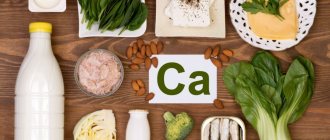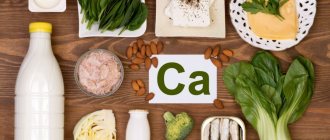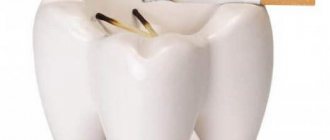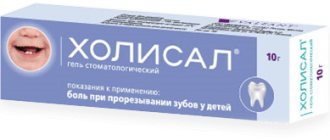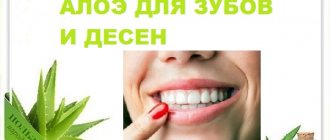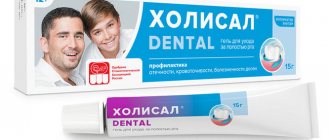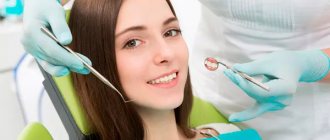Consultation with a doctor When it comes to the oral cavity, the expression “you are what you eat” becomes truly meaningful. Sweet foods such as sugar, candy, and carbonated drinks lead to the destruction of tooth enamel. Other foods, such as dairy products or vegetables, on the other hand, help fight plaque buildup and act like a natural toothbrush, delaying dental treatment for longer.
So, what foods promote dental health?
The influence of nutrition on dental health
To maintain oral health, a number of microelements are required - calcium, fluoride and phosphorus. A person gets them from food. If the diet contains few healthy and micronutrient-rich foods, the enamel weakens and is more difficult to restore.
Dental plaque is a thin, invisible film on the teeth that maintains the health and microflora of the mouth. When a person eats sugary or starchy foods, it reacts with plaque to form acids. These acids attack the enamel, destroying it.
Consuming sugar in small quantities will not lead to tooth decay or inflammatory diseases. But if harmful foods are constantly in the diet, then undesirable consequences will certainly arise, and treatment of caries cannot be avoided.
Excess sugar and lack of calcium and phosphorus leads to caries and inflammatory diseases of the oral cavity.
Prevention of acid erosion
All diseases - including acid erosion of enamel - can be avoided if you visit the dentist every six months to a year for a routine examination. A competent specialist is able to diagnose non-carious dental diseases in the early stages and prescribe preventive measures.
Prevention of acid erosion
To do this, the doctor will diagnose erosive tooth wear, collect a life history and ask you about possible causative factors. You need to understand that there is no special device for assessing acid erosion. These defects can only be detected by a dentist during an examination.
Erosion that is not detected in the early stages later turns into a real problem. If you ignore early symptoms and do not consult a doctor, you may end up needing a serious comprehensive restoration of damaged teeth with restoration of bite height. This includes professional oral hygiene, often treatment of dental canals, strengthening them with pin structures and total prosthetics. This is an expensive and quite long rehabilitation that can be avoided with timely prevention.
Products that are harmful
What is good for your teeth is good for your entire body. Poor nutrition causes physical and psychological problems. Oral diseases lead to a decrease in overall immunity. And with pain or active inflammation, it will be difficult to eat and communicate.
So, harmful foods for teeth are:
- Sweets. This includes chocolate, cakes, cookies, candies. The sugar contained in these products settles on the enamel and subsequently destroys it. Also, crowns and fillings placed on teeth wear out faster. The worst are those sweets that are difficult to clean out of the mouth, like candy or caramel. Small pieces of caramel get stuck between teeth. This is significantly worse than, for example, chocolate, which easily washes out when brushing or rinsing.
- Soft drinks. Store-bought soda and iced tea contain equal amounts of harmful sugars, which erode tooth enamel and lead to tooth decay. It is better to give up such drinks and switch to water or unsweetened loose leaf tea. If it is difficult to give up carbonated sweet drinks, then after each use you should rinse your mouth with warm water.
- Hard and starchy foods. These are crackers, chips, popcorn, nuts and dried fruits. They not only get stuck between the teeth, but also scratch the enamel and gums. Scratches turn into small cracks. Food will get stuck there, which will lead to inflammatory processes.
- Sour. Citrus fruits and juices from them, lemon and berries - all this harms teeth. High acid content is harmful to oral health. It is worth limiting the consumption of foods with high acidity. It is advisable to drink juices through a straw - contact with the enamel will be significantly reduced, along with the risk of undesirable consequences.
- Coloring products. Black currants and chokeberries strongly stain tooth enamel. But these berries also contain vitamins that are good for teeth. So you can eat them, but you shouldn’t overuse them. The second product is coffee. It is not only capable of staining the enamel dark, but also leaching calcium from the enamel. Therefore, it is better to reduce coffee to 1 cup per day or, if possible, completely abandon it. Professional teeth whitening will give longer lasting results if you follow a “white” diet.
Enamel-damaging products
To prevent dental diseases, it is necessary to carry out competent preventive measures. Without a properly selected and balanced diet, it is impossible to save teeth.
The list of harmful products is presented:
- Sweet sparkling water
Drinks are dominated by sugar and large volumes of carbon dioxide, which negatively affect the condition of hard tissues. The first sign of damage is the problem of increased sensitivity of teeth to temperature, acidity and other mechanical factors. Soda causes damage to the entire body - it provokes flatulence, disrupts the functioning of the digestive system, and increases blood glucose levels.
- Sweets and chocolate
Sugar causes yellowing of the enamel and its active destruction. Particularly harmful products include:
- caramel;
- toffee;
- sucking and jelly candies.
Prolonged resorption or chewing leads to local mechanical injuries. Due to glucose, the rate of calcium absorption decreases, and calcium deficiency begins. Acceptable substitutes include dark chocolate in small quantities. It contains substances with an antibacterial effect that slow down plaque formation.
- Dried fruits
Dried fruits contain huge amounts of sugars due to loss of moisture. The product contains its maximum concentration - up to 60%. The viscous consistency of the product leads to the adhesion of small particles in hard-to-reach places. As a result, prolonged contact of a piece of dried fruit with teeth causes the development of caries.
- Coffee drinks
The appearance of pigmented spots and partial darkening of the enamel is associated with coffee. To reduce the risk of staining, you should thoroughly rinse your mouth or use a straw after each cup of drink. The tube will help reduce the size of the contact surface.
- Simple carbohydrates
Sucrose, fructose, glucose and glycogen are found in large quantities in jams, pastries, white rice, custard cakes, etc. Excessive consumption of such products quickly increases body weight and negatively affects the condition of teeth. During contact with saliva, the substances contained in sweets begin to release organic acids. An increased concentration of lactic acid and sugars activates demineralization processes.
- Roasted seeds and nuts
The high content of minerals and nutrients that help strengthen gums and enamel does not protect against mechanical injuries when consuming products. The hard surface provokes the appearance of microscopic cracks and chips, and attempts to remove the shell with the front incisors quickly thin the enamel and cause caries.
Products good for teeth
- Dairy products. Milk, yogurt, cheeses and cottage cheese are the main products that strengthen teeth. They are rich in microelements necessary for enamel - phosphorus, calcium and fluorine. As well as the protein casein, which is involved in the formation of protective plaque. Dairy products also contain vitamin D, which helps calcium be absorbed properly. The main thing is to choose dairy products without sugar or sweet additives.
- Greenery. Leafy greens are always at the top of the list for healthy foods. It is full of vitamins and microelements that are so necessary for the body and, in particular, teeth. Calcium, folic acid, B vitamins strengthen enamel and reduce inflammatory processes, which can prevent rapid gum treatment.
- Hard vegetables and fruits. Apples, pears, carrots, celery and cucumbers contain a full range of vitamins and minerals. This helps to form the correct microflora in the oral cavity and strengthen teeth. The fibrous, hard structure of fruits and vegetables works like a toothbrush - a natural massage of the gums and a complete cleansing of the oral cavity.
- Water and weak teas. Water helps get rid of food particles between the teeth and rinses the mouth. This not only prevents inflammation, but also eliminates bad breath. Tea - green, white or weak black - also has a positive effect on the condition of the enamel. Green tea contains fluoride, which is essential for teeth.
- Seafood. It is known that fish and other seafood are the main source of omega-3, phosphorus, calcium and fluoride. All these microelements are necessary, so eating fish will definitely improve the condition of the oral cavity.
Each product affects not only the general condition, but also the health of the oral cavity. It is important to maintain a healthy balance in your diet, focusing on healthy foods and reducing harmful ones to a minimum.
After eating unhealthy food, you should rinse your mouth with water to minimize the negative effects.
The main thing is not to forget to brush your teeth twice a day and use special floss.
Professional oral cleaning will help you maintain a beautiful and healthy smile. The doctor's consultation
Sweets and chewing gum
As I already said, sugar is extremely harmful to teeth because it creates a favorable environment for the growth of bacteria. Sticky toffees, caramel, lollipops, chocolate, cotton candy are the enemies of enamel. Chewing gum can easily be attributed to this company. But, speaking of candies and chewing gum, we must exclude from the harmful list those that contain xylitol, a sweetener that prevents the proliferation of cariogenic flora in the oral cavity. But even in this case, you need to remember that chewing gum cannot be used for a long time. It's like toothpaste - you chew it for a minute after eating to cleanse your mouth, and then throw it away. Long-term use is harmful.
You will be left without teeth and with a belly! What you need to know about chocolate Read more
What harms our teeth?
So, we need to start by understanding that daily brushing of teeth is only part of caries prevention, although it is the most important part of oral care. An equally important role is played by what we eat, and every day, since in some cases brushing our teeth in the morning and evening (2 times a day) may not be enough to eliminate the risk of caries. The fact is that the worst enemy of our teeth are acids contained not only in food, but also in numerous sweet drinks. Moreover, some food that gets stuck between teeth can produce these acids, which are very harmful to tooth enamel, damaging it and opening up access to pathogens.
Accordingly, the most valuable and useful products specifically for teeth are those that can neutralize the effects of acids, as well as those containing trace elements, alkali and vitamins. This must be taken into account when preparing your daily diet, as this will protect your teeth from harmful effects, keeping them healthy and strong for a very long time.
The main harmful foods for teeth
Although all foods have beneficial substances and properties that can improve the overall health of the body, there is a list of foods that can harm the health and beauty of your smile. Dentists do not recommend using these dental products, especially on an ongoing basis:
- Raw and roasted sunflower seeds cause significant damage to tooth enamel during the process of cleaning the seed kernel from the shell. Systematic use can cause wear of the enamel and the appearance of microcracks - this leads to the formation of primary caries and its consequences;
- Coloring products for teeth - primarily tea and coffee. They contribute to the rapid staining of tooth enamel, which spoils the aesthetics of a smile;
- Rough abrasive foods - chips, crackers, snacks. Due to intense mechanical friction, they injure the enamel, which leads to the development of dental problems;
- Sugar and foods high in sugar - candies, chocolate, marmalade, candy bars, etc. These products slow down the absorption of calcium by the body, causing a decrease in the strength of hard tooth tissues.
Following a proper diet and regular preventive examinations at the dental clinic will improve the health and beauty of your teeth!
